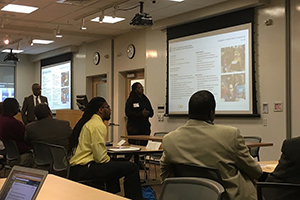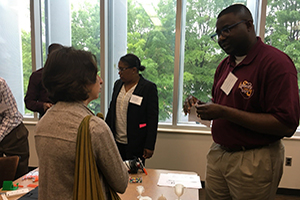08 Aug2017
By Jason Wingate
The author is a member of AACTE’s Clinical Practice Commission. The views expressed in this post do not necessarily reflect the views of AACTE.
During the recent accreditation visit on my campus, my colleagues and I encountered the comprehensiveness of the new Council for the Accreditation of Educator Preparation (CAEP) standards and how difficult it is to reach those standards entirely, especially in a state that does not share PK-12 data of students and graduates. In one area, however, we thrived: Standard 2, which focuses on clinical partnerships and practice.
07 Aug2017
By Amy Vessel
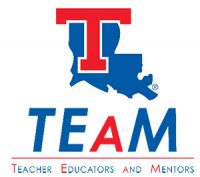
This article is the first in a series of three showcasing the transformation of preservice field experiences at Louisiana Tech University. The views expressed in this post do not necessarily reflect the views of AACTE.
With a vision of quality, rich field experiences connected to theory and practice for many years, Louisiana Tech University was well positioned to chart a path in the early years of Louisiana’s Believe and Prepare initiative to transform traditional student teaching to a full-year clinical residency. Already, the redesigned model is having a positive impact on teacher preparation and engagement, not only in our programs but throughout the state.
18 Jul2017
By Kristin McCabe

Thanks to several brand-new sessions and revamped activities throughout the original program, next month’s regional AACTE Quality Support Workshop will deliver an even more robust program than its popular predecessor. During the event August 10-12 in Minneapolis, Minnesota, participants will choose from two dozen expert-facilitated workshops offered in seven time blocks – with topics such as interpreting candidate assessment data, mapping curricula to competency indicators, preparing evidence for an accreditation visit, recruiting and supporting more diverse candidates, and others.
Many of the sessions from last spring’s southern regional workshop, held in Fort Worth, Texas, will run again in Minneapolis with few changes. Others are bringing in new facilitators or making adjustments to reflect feedback from attendees (the organizers do try to practice what they preach about using data for improvement!).
10 Jul2017
By Aaron Goldstein

On behalf of AACTE, I recently attended the annual National Forum on Education Policy of the Education Commission of the States (ECS), a national organization of state education policy leaders. The more than 550 attendees at the forum included governors, state education chiefs, chairs of state legislatures’ education committees, and higher education executives, many of whom were new to their position. In fact, one of my main takeaways from the conference was the high level of recent turnover in states’ positions for education decision makers – and the associated need for educators to maintain outreach efforts to connect with them.
Over the past 2 years, there has been drastic leadership change for state legislators, chief state school officers, and governors. In 2016, elections were held for 86 of the 98 partisan state legislative chambers and for 6 of the 13 elected chief state school officers. Furthermore, the average tenure of a chief state school officer is approximately 2½ years. In 2017, 36 states will hold elections for their governors, at least 16 of which must be new due to term limits.
27 Jun2017
By Amanda Lester
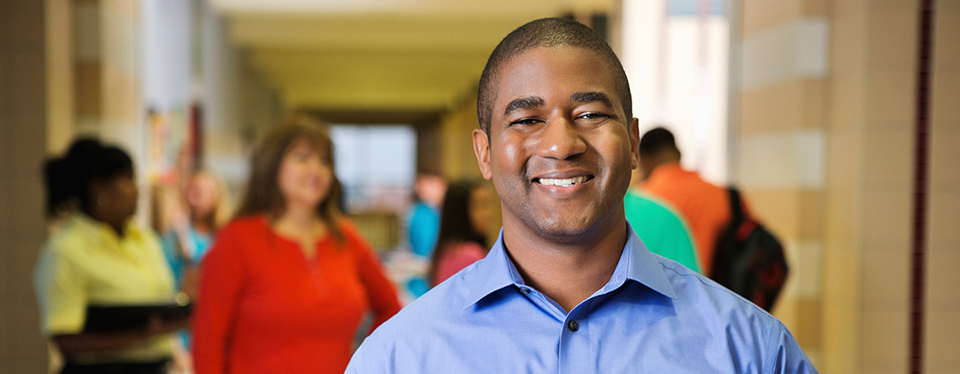
On July 27, AACTE will host the final installment of a four-part webinar series highlighting the experiences and findings of each of the 10 institutions in the AACTE Black and Hispanic/Latino Male Teachers Initiative Networked Improvement Community (NIC). The webinar, “Diversifying the Teacher Pipeline at CSU-Fullerton and Northeastern Illinois University: Lessons From AACTE’s NIC,” will be held on Thursday, July 27, 2:00-3:00 p.m. EDT.
In this webinar, presenters from California State University, Fullerton, and Northeastern Illinois University will discuss the how their teams applied improvement science in the context of the NIC, as well as at their own institutions. The discussion will feature specific initiatives and strategies developed by both institutions’ teams and will demonstrate how NIC-developed approaches can be adapted locally to advance a common goal – in this case, to increase the percentage of Black and Hispanic/Latino men receiving initial teaching certification through educator preparation programs.
27 Jun2017
By Shawn Karim
Two final videos are available this week on AACTE’s Research-to-Practice Spotlight Series highlighting the St. John’s University (NY) School of Education clinical preparation program known as RISE. These videos focus on building successful collaborations among professors, future teachers, and schools, and on important themes such as flexibility, humility, and remembering the “bottom line” goal of helping children learn.
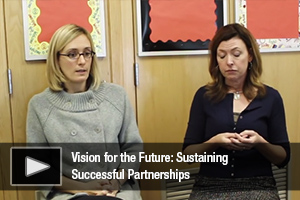
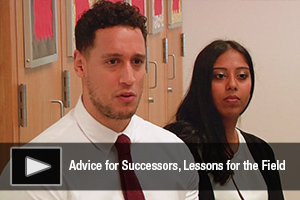
20 Jun2017
By Amanda Lester
A member of the North Carolina A&T State University team shares its work during the May event at Morgan State University.
Abiodun Fasoro of Central State University discusses his campus’ minority male STEM program during the Verizon Innovative Learning Showcase.
Last month, I had the privilege of participating in the Building a Networked Improvement Community Around Engaging Minority Males in STEM Workshop at Morgan State University. The workshop focused on advancing the work of the Early STEM Engagement for Minority Males (eSEM) Initiative, a network of 16 minority-serving institutions (MSIs).
Led by Morgan State and in partnership with Verizon Innovative Learning Programs, SRI Education, the National CARES Mentoring Network, and local school districts, eSEM is a growing collaborative seeking to address STEM achievement challenges and improve outcomes for middle school minority male students through the development of a Networked Improvement Community (NIC). The initiative is supported through grants from the National Science Foundation and includes the following universities:
13 Jun2017
By Kristin McCabe
Two new videos are available this week on AACTE’s Research-to-Practice Spotlight Series highlighting the St. John’s University (NY) School of Education clinical preparation program known as RISE, or the Residential Internship for St. John’s Educators. This week’s video interviews present faculty and administrators discussing various challenges they’ve had to overcome in setting up and sustaining the RISE Program – and why the results are worth the effort.
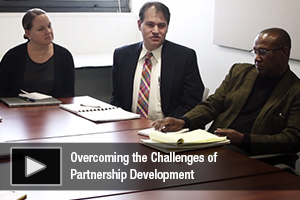
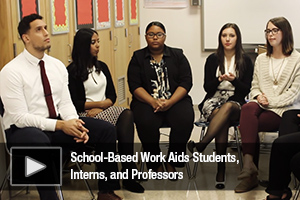
The School of Education at St. John’s University (SJU) and its Residential Internship for St. John’s Educators (RISE) have hit a stride with their clinical partnerships to prepare new teachers – but it wasn’t always easy. To get to this point, all parties have worked to overcome hurdles and cultivate strong relationships that set them up for successful navigation of future bumps in the road.
30 May2017
By Rebecca Gutierrez
Two new videos are available this week on AACTE’s Research-to-Practice Spotlight Series highlighting the St. John’s University (NY) School of Education clinical preparation program known as RISE. This week’s videos discuss the benefits of having an extra teacher in the classroom and of the methods class taught by SJU professors in the partner schools.
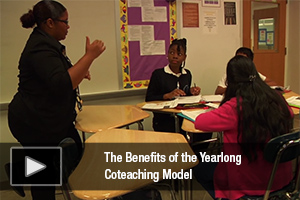
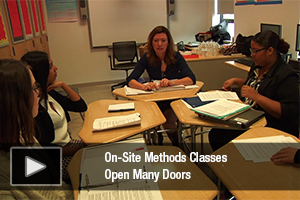
16 May2017
By Rebecca Gutierrez
Two new videos are available this week in AACTE’s Research-to-Practice Spotlight Series highlighting the St. John’s University (NY) School of Education clinical preparation program known as RISE. This week’s videos show how the experience teacher candidates have in the classroom contributes to their teaching style and to their readiness to teach after completing their 1-year internships. See this introduction to the series for more information about RISE.
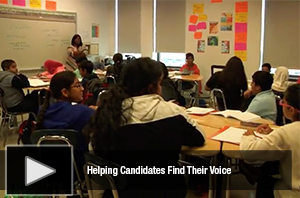
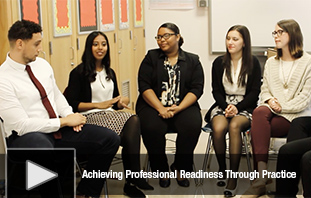
The School of Education at St. John’s University (SJU) and its Residential Internship for St. John’s Educators (RISE) in partnership with Queens school districts develop high-quality teachers by exposing candidates intensively to classrooms during their collegiate career. SJU students develop their teaching style and voice and enter the profession feeling confident and prepared, thanks to their residential internship experiences and prolonged mentorship by veteran teachers.
02 May2017
By Rodrick Lucero
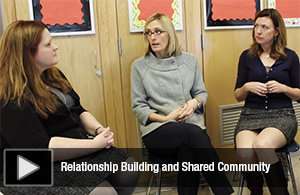
I am thrilled to introduce the St. John’s University (NY) School of Education as the next featured institution in the AACTE Research-to-Practice Spotlight series. In this latest focus on exemplary models of clinical practice, we highlight the work of the Residential Internship for St. John’s Educators (RISE) program in Queens, New York. This partnership with surrounding school districts aims to develop the very best teachers for local classrooms, a mission to which both the university and the school district are committed.
The first video in the series is now posted in the Innovation Exchange, introducing the RISE program’s yearlong internships and focusing on the importance of relationship-building and a shared professional community. Over the next few weeks, we’ll be publishing additional videos and blog summaries to highlight what AACTE staff learned during our visit to the St. John’s campus and partner sites.
04 Apr2017
By Amanda Lester and Rodrick Lucero
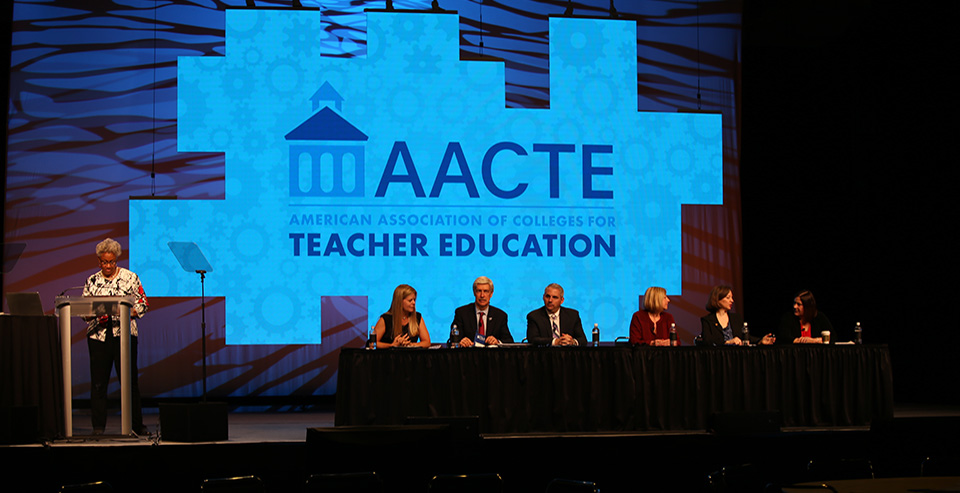
On the last day of the 69th AACTE Annual Meeting in Tampa, Florida, the AACTE Clinical Practice Commission (CPC) held a major forum to unveil and discuss the 10 “Essential Proclamations and Tenets for Highly Effective Clinical Educator Preparation” identified in the CPC’s work. These proclamations and tenets, which undergird a forthcoming white paper, were released during the forum as part of a draft executive summary of the paper.
The event started with a panel presentation and discussion moderated by CPC member Jennifer Robinson, executive director of the Center of Pedagogy and associate professor at Montclair State University (NJ). Panelists included Michael Alfano, Central Connecticut State University; Diane Fogarty, Loyola Marymount University (CA); John Henning, Monmouth University (NJ); Rene Roselle, University of Connecticut; Jennifer Roth, Poudre School District (Fort Collins, CO); and Christine Smith, University at Albany, State University of New York.
07 Mar2017
By Rebecca Gutierrez
The final segments of AACTE’s Research-to-Practice Spotlight Series featuring the George Mason University (VA) clinical model are now available online. This week’s videos present the voices of first and fourth graders from Westlawn Elementary School and Daniels Run Elementary School discussing their experience learning from interns alongside their experienced teachers.
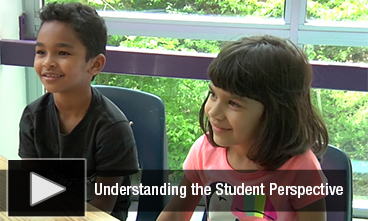

21 Feb2017
By Rebecca Gutierrez
Two new videos are available this week on AACTE’s Research-to-Practice Spotlight Series highlighting the George Mason University (VA) College of Education and Human Development’s clinical preparation program. This week’s videos present partner elementary schools’ experience with having multiple teachers in the classroom and display the readiness of George Mason students after completing their 1-year internships.
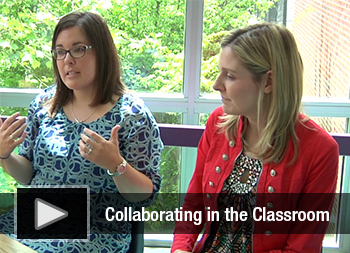
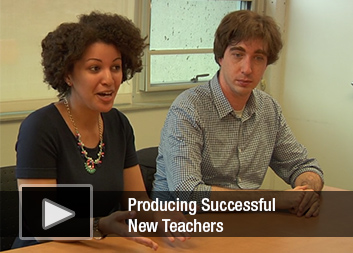
The College of Education and Human Development at George Mason University (GMU) and its network of professional development schools (PDSs) benefit PK-12 student learning in several ways. Students enjoy having access to a second adult in the room dedicated to helping them succeed; teacher mentors gain new perspectives and techniques they can integrate in their classroom; and teacher candidates are prepared through a yearlong internship to hit the ground running in their own classrooms in the future.
14 Feb2017
By Kristin McCabe
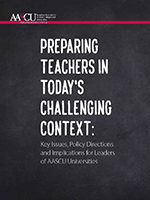
A new report from the Teacher Education Task Force of the American Association of State Colleges and Universities (AASCU) makes a compelling case for quality teacher preparation, capturing the key challenges that make the current context complex but also offering recommendations for both university leaders and policy makers to move the field forward.
The task force conducted a survey last year of presidents, provosts, and education deans at state colleges and universities to gauge the current state of educator preparation. (The survey results are included as an appendix to the new report.) The responses informed conversations among task force members to distill the core themes, debate their implications in light of the latest research, and determine consensus recommendations for priority actions by higher education administrators. The results were combined to craft the new report, and the AASCU policy team added a set of priorities for federal and state policy.













